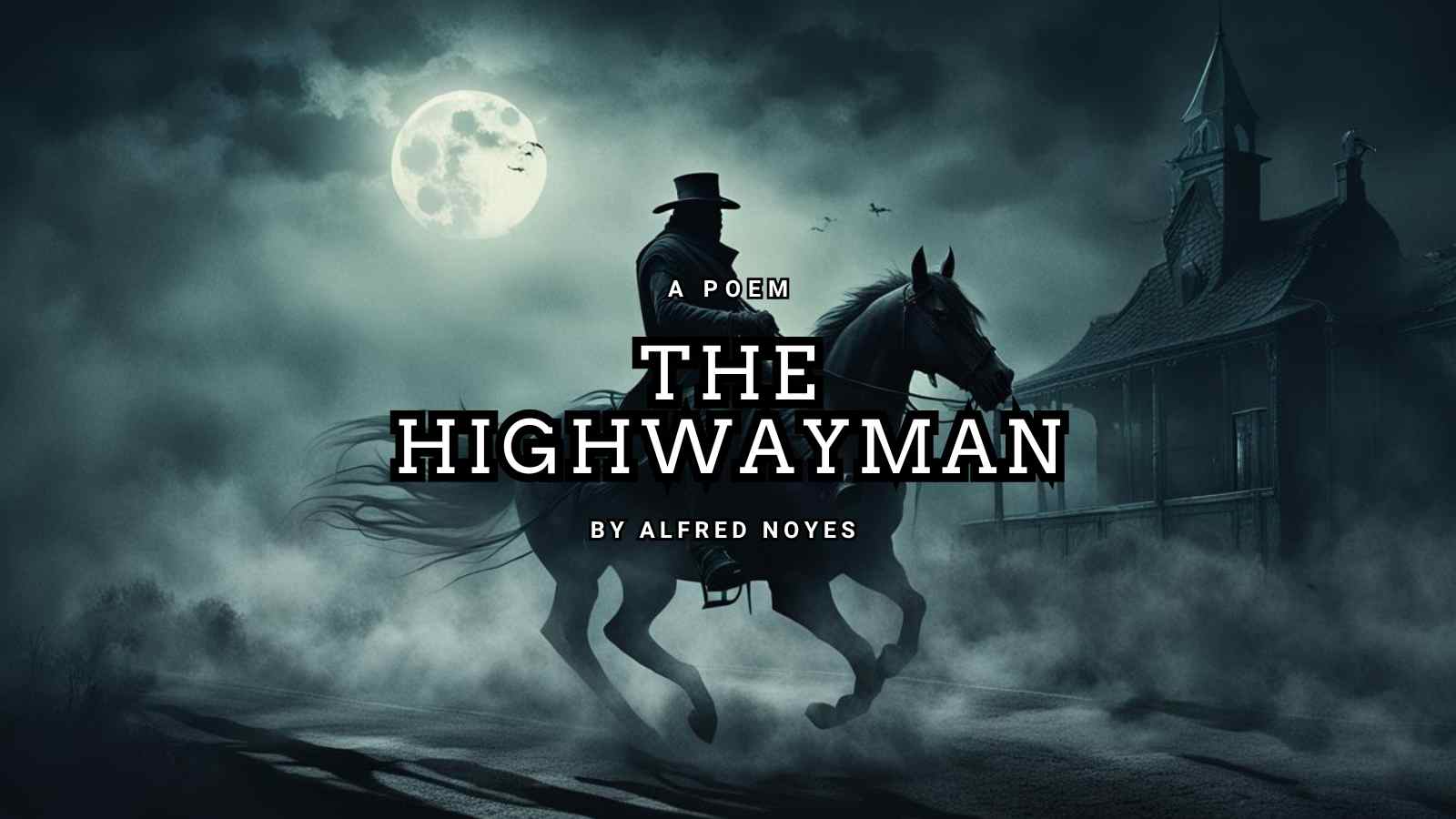“The Highwayman” by Alfred Noyes is a haunting narrative poem that tells a tragic tale of love and sacrifice in 18th-century England.
Poems for Kids
The Death of Robin Hood by Eugene Field
The Death of Robin Hood ?by Eugene Field “Give me my bow,” said Robin Hood, “An arrow give to me; And where ‘t is shot mark thou that spot, For there my grave shall be.” Then Little John did make no sign, And not a word he spake; But he smiled, altho’ with mickle woe…
THE LOOKING-GLASS BY RUDYARD KIPLING
THE LOOKING-GLASS by RUDYARD KIPLING The Queen was in her chamber, and she was middling old, Her petticoat was of satin, and her stomacher was gold. Backwards and forwards and sideways did she pass, Making up her mind to face the cruel looking-glass. The cruel looking-glass that will never show a lass As comely or…
Gunga Din by Rudyard Kipling
Rudyard Kipling (1865-1936) Gunga Din You may talk o’ gin and beer When you’re quartered safe out ‘ere, An’ you’re sent to penny-fights an’ Aldershot it; But when it comes to slaughter You will do your work on water, An’ you’ll lick the bloomin’ boots of ‘im that’s got it. Now in Injia’s sunny clime,…
EPITAPH ON A HARE by William Cowper
EPITAPH ON A HARE by William Cowper Here lies, whom hound did ne’er pursue, Nor swifter greyhound follow, Whose foot ne’er tainted morning dew, Nor ear heard huntsman’s halloo; Old Tiney, surliest of his kind, Who, nursed with tender care, And to domestic bounds confined, Was still a wild Jack hare. Though duly from my…
WHEN I WAS ONE-AND-TWENTY by Alfred Edward Housman
A. E. Housman was born March 26, 1859, and, after a classical education, he was, for ten years, a Higher Division Clerk in H. M. Patent Office. Later in life, he became a teacher.
Fast rode the knight by Stephen Crane
My Shadow by Robert Louis Stevenson
Robert Louis Stevenson (1850-1894) My Shadow I have a little shadow that goes in and out with me, And what can be the use of him is more than I can see. He is very, very like me from the heels up to the head; And I see him jump before me, when I jump…
